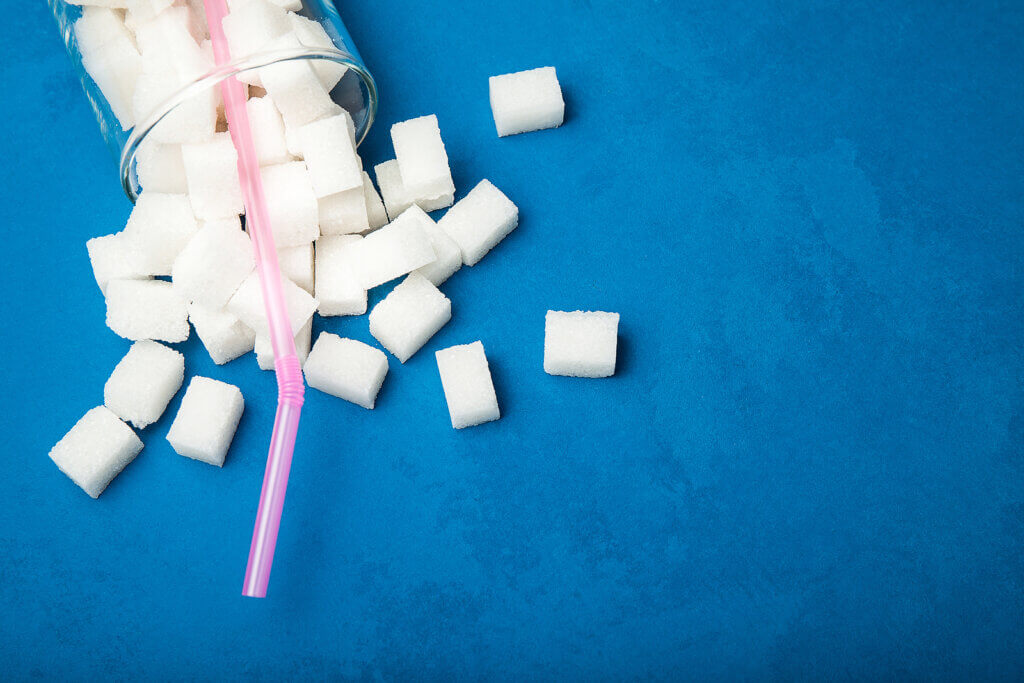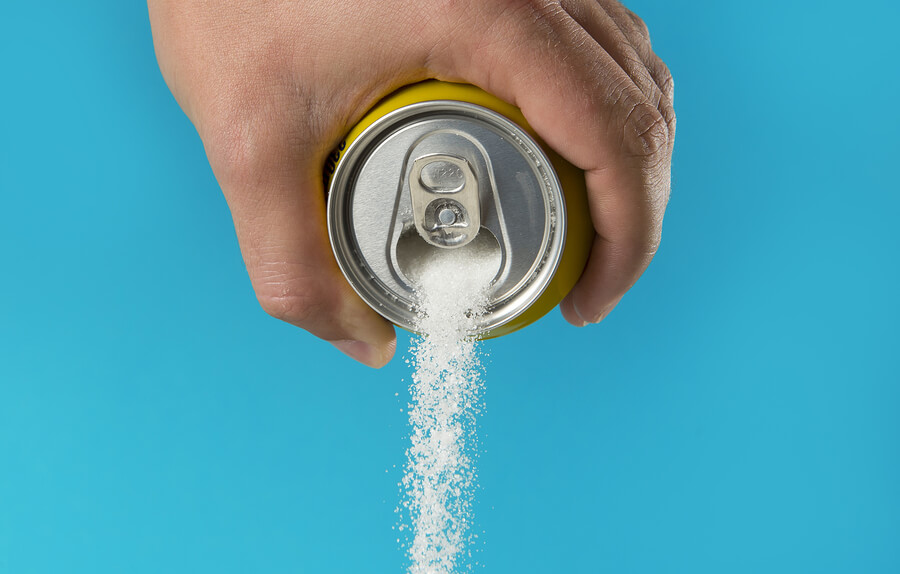Table of Contents
When it comes to quenching thirst, carbonated sodas often seem like an irresistible option. The advent of calorie-free or diet sodas has only increased their allure, promising a guilt-free indulgence. But do these fizzy drinks truly offer a free ride, or do they carry long-term health implications? This comprehensive blog post aims to delve into the science behind calorie-free carbonated sodas and their long-term health impacts.
What is Calorie-Free Carbonated Sodas?
Calorie-free carbonated sodas, often labeled as “diet” or “zero,” are beverages that offer the sweet taste and fizzy sensation of regular sodas without the calories. These drinks are typically sweetened with artificial sweeteners or sugar substitutes such as aspartame, sucralose, and acesulfame potassium (Ace-K), instead of sugar.

The Appeal of Calorie-Free Carbonated Sodas
Calorie-free carbonated sodas bring an irresistible allure to the table, which can be attributed to several key factors:
Zero Calorie Promise
The most prominent attraction of these sodas is undoubtedly their zero-calorie claim. This feature appeals particularly to individuals who are conscious about their calorie consumption, striving to maintain a calorie deficit or adhere to a weight-loss plan.
Familiar Soda Enjoyment
Despite the absence of traditional sugars, these beverages maintain the familiar, tantalizing taste and fizz of regular sodas. This combination of flavor and effervescence offers an enjoyable experience, satisfying soda cravings without the associated caloric guilt.
Perceived Healthier Alternative
Calorie-free carbonated sodas are often perceived as a healthier choice compared to their sugar-laden counterparts. This perception is particularly appealing to individuals attempting to control their blood sugar levels, making these beverages an attractive option for people with diabetes or those at risk of developing the condition.
Ease of Incorporation into Dietary Plans
Due to their zero-calorie nature, these sodas can easily be incorporated into various dietary plans, including low-carb, keto, and diabetic diets. This ease of incorporation adds to their appeal, making them a go-to beverage for individuals following these specific nutritional strategies.
The Science Behind Calorie-Free Carbonated Sodas
The scientific mechanisms that allow calorie-free carbonated sodas to maintain their sweetness without the caloric baggage lie primarily in their use of artificial sweeteners. Here's a more in-depth explanation:
Artificial Sweeteners and Zero Calories
The zero-calorie claim of these sodas is primarily due to the use of artificial sweeteners like aspartame, sucralose, and acesulfame potassium. These substances impart the sweetness we associate with sugar but do not contribute any calories to the beverage, thus allowing for a calorie-free label.
Distinct Chemical Structures
Despite mimicking the sweet taste of sugar, these artificial sweeteners bear distinct chemical structures that differentiate them from regular sugar. This structural variation is crucial, as it determines how these substances are metabolized in our bodies.
Different Metabolic Responses
Due to their unique chemical structures, artificial sweeteners are metabolized differently than regular sugar. Instead of being broken down for energy, as sugar would be, these sweeteners often pass through the body unmetabolized.
Potential Health Implications
These distinct metabolic pathways can have significant implications for our health. While further research is needed, some studies suggest that these sweeteners can influence our gut microbiota, glucose regulation, and satiety signals, potentially contributing to long-term health concerns like obesity, metabolic syndrome, and type 2 diabetes.

How Calorie-Free Carbonated Sodas Can Impact Health Long-Term
Despite the allure of a zero-calorie beverage, long-term consumption of calorie-free carbonated sodas can carry several potential health implications. Here are some of the primary areas of concern:
Impact on Metabolic Health
Regular consumption of artificially sweetened beverages has been connected to an escalated risk of metabolic syndrome. Metabolic syndrome is a collection of conditions—increased blood pressure, high blood sugar levels, excess body fat around the waist, and abnormal cholesterol levels—that, when occurring together, increase the risk of heart disease, stroke, and type 2 diabetes. This connection is thought to be a result of artificial sweeteners' potential to disrupt the delicate balance of gut microbiota, leading to glucose intolerance.
Influence on Bone Health
Some scientific investigations hint at a possible correlation between the consumption of diet sodas and a decrease in bone mineral density, suggesting a potential impact on bone health. However, the precise mechanisms driving this connection are yet to be fully understood, and further research is required to substantiate these initial findings.
Effects on Dental Health
While calorie-free sodas are free from the harmful sugars that often contribute to tooth decay, they are not entirely friendly to your dental health. These beverages usually contain acids which, when consumed regularly, can erode tooth enamel, thereby increasing the risk of cavities and tooth decay.
Potential Contribution to Weight Gain and Obesity
Paradoxically, numerous observational studies have found an association between the consumption of diet sodas and weight gain, as well as an increased risk of obesity. This unexpected relationship could potentially be attributed to compensatory increases in calorie intake from other food sources, or it might be a result of specific metabolic responses triggered by artificial sweeteners.

The Influence of Calorie-Free Carbonated Sodas on Gut Health
Remarkably, calorie-free carbonated sodas may have an impact on your gut health due to the artificial sweeteners they encompass. The effects can be broken down as follows:
Alteration of Gut Microbiota: A growing body of research suggests that artificial sweeteners can modify the gut microbiota, the community of microorganisms residing in our intestines. These alterations can have a significant influence on our digestive health, possibly contributing to glucose intolerance, a condition where the body cannot efficiently process the glucose from the food we eat.
Potential Aggravation of Irritable Bowel Syndrome (IBS): There's an indication that artificial sweeteners, especially when ingested in large quantities, can initiate or intensify symptoms in individuals diagnosed with Irritable Bowel Syndrome (IBS). IBS is a common disorder that affects the large intestine and can cause cramping, abdominal pain, bloating, and changes in bowel habits.
Increased Risk of Inflammatory Bowel Disease (IBD): Certain studies hint at the possibility that artificial sweeteners might heighten the risk of inflammatory bowel diseases, such as Crohn's disease or ulcerative colitis. These conditions involve chronic inflammation of the digestive tract and can cause severe diarrhea, abdominal pain, fatigue, and weight loss.
Potential for Kidney Damage: There's some evidence that long-term consumption of calorie-free sodas may be linked to kidney damage. Research suggests that artificial sweeteners may cause harm to the kidneys over time, potentially contributing to chronic kidney disease. However, it's essential to note that the research in this area is still developing and further studies are needed to confirm these findings.
Cardiovascular Concerns: Some research has suggested a correlation between the consumption of diet sodas and an increased risk of certain cardiovascular events like heart disease, high blood pressure, and stroke. The proposed explanation behind this connection is the role of artificial sweeteners in influencing metabolic processes, which could negatively impact cardiovascular health over time. Yet, the relationship between diet soda consumption and cardiovascular health is complex and more research is required to fully understand it.

The Influence of Calorie-Free Carbonated Sodas on Mental Health
Intriguingly, emerging research has revealed potential connections between the consumption of calorie-free carbonated sodas and various mental health issues. Let's delve into these potential links:
Increased Risk of Depression
Prolonged consumption of beverages sweetened with artificial ingredients has been linked to a heightened risk of depression. Various epidemiological studies have revealed a correlation between the long-term intake of artificially sweetened drinks and an increased incidence of depressive disorders.
Potential Impact on Mood and Cognitive Function
Preliminary research has indicated that artificial sweeteners might have an influence on both mood and cognitive function. Certain studies suggest that these substances could alter brain function or the neural pathways involved in mood regulation, potentially leading to mood swings or cognitive impairment. However, it's important to note that this field of research is still in its early stages, and more extensive studies are needed to firmly establish these links.
Potential Links to Anxiety Disorders
Some preliminary research suggests that artificial sweeteners used in calorie-free sodas might be associated with an increased risk of anxiety disorders. This may be due to the potential effect of these sweeteners on serotonin levels, a neurotransmitter that helps regulate mood. However, the exact mechanisms aren't fully understood and further research is needed to confirm these findings.
Possible Effect on Sleep Patterns
There's some evidence to suggest that the regular consumption of diet sodas could disrupt normal sleep patterns, potentially contributing to sleep disorders like insomnia. This could, in turn, impact mental health as poor or inadequate sleep is often linked with a higher risk of various mental health issues, including depression and anxiety. It's important to note that more research is necessary to fully understand the potential relationship between diet soda consumption and sleep disturbances.
The Role of Calorie-Free Carbonated Sodas in Dieting and Weight Management
Calorie-free carbonated sodas are frequently promoted as aids to dieting, promising to help with weight loss without sacrificing the pleasure of a fizzy drink. But do they truly deliver on this promise? Let's assess:
Potential Compensatory Eating
Intriguingly, some scientific studies suggest that consuming calorie-free carbonated beverages might instigate compensatory eating behaviors. This means that individuals who consume these drinks might end up eating more later in the day, offsetting any benefits gained from reducing their caloric intake through these beverages.
Altered Taste Preferences
Another interesting observation is that the regular intake of artificial sweeteners, like those found in calorie-free sodas, can modify taste preferences over time. This can lead to an increased preference for sweet foods and beverages, which could promote higher overall calorie consumption and potentially lead to weight gain. Therefore, despite their zero-calorie label, these beverages could indirectly contribute to weight gain by shaping our taste preferences towards sweeter options.
Disrupted Metabolic Responses
Some research suggests that the artificial sweeteners used in calorie-free carbonated sodas might disrupt normal metabolic responses. This could potentially lead to metabolic syndrome, a condition characterized by high blood pressure, high blood sugar levels, excess body fat around the waist, and abnormal cholesterol or triglyceride levels, all of which can hinder weight management efforts.
Potential Effect on Hunger and Satiety Signals
Another possible impact of consuming calorie-free sodas could be a disruption of the body's natural hunger and satiety signals. By offering sweetness without the accompanying calories, these beverages might confuse the body's ability to accurately gauge energy intake, potentially leading to overeating and difficulty with weight management. Further research is needed to fully understand these potential effects and how they might impact an individual's weight loss journey.
Evaluating the Safety of Artificial Sweeteners in Calorie-Free Carbonated Sodas
Artificial sweeteners, which form the backbone of calorie-free carbonated sodas, have been a subject of dispute for years. Let's delve deeper into the existing concerns:
Potential Cancer Risk
Even though the U.S. Food and Drug Administration (FDA) has approved the use of various artificial sweeteners, some research studies, particularly those conducted on animals, have suggested potential links to cancer. These findings have fueled ongoing debates about the safety of these sweeteners. However, it's crucial to note that these results are not definitively applicable to humans, and so far, conclusive evidence of a cancer risk in human populations is lacking.
Effects on Kidney Function
There's a body of research that indicates a potential risk of diminished kidney function associated with the long-term consumption of beverages sweetened with artificial sweeteners. These studies suggest that these substances may strain the kidneys over time, potentially contributing to chronic kidney disease. It's important to bear in mind that the research in this area is ongoing and more studies are needed to confirm these potential effects.
Possible Impact on Gut Health
Emerging research has pointed toward the potential impact of artificial sweeteners on gut health. Studies suggest that these substances might disrupt the balance of the gut microbiota, the community of microorganisms living in our intestines. This could potentially lead to issues such as digestive discomfort, glucose intolerance, and even an increased risk of metabolic disorders.
Neurological Concerns
Some research has explored the potential effects of artificial sweeteners on the nervous system. There's evidence suggesting that high consumption of these substances might influence neurological functions and potentially contribute to headaches, migraines, or changes in mood. However, these findings are still preliminary, and more extensive research is required to fully understand the potential neurological effects of artificial sweeteners.
Conclusion: The Final Verdict
While calorie-free carbonated sodas might present an enticing proposition as a zero-calorie and sugar-free substitute for traditional sodas, it's essential to carefully consider their potential long-term health repercussions. Making educated decisions regarding our beverage consumption is key, balancing immediate enjoyment with sustainable health and wellbeing. By weighing the immediate gratification of a fizzy drink against the possible long-term health effects, we can make choices that support our health in the long run.
Sources:
- Artificial sweeteners induce glucose intolerance by altering the gut microbiota – Nature, 2014.
- Diet soda intake and risk of incident metabolic syndrome and type 2 diabetes – Diabetes Care, 2009.
- Diet soft drink consumption is associated with an increased risk of vascular events – Journal of General Internal Medicine, 2012.
- Artificially sweetened beverages and the response to the global obesity crisis – PLoS Medicine, 2017.
- Acid attack – the truth about fizzy drinks – Oral Health Foundation, 2016.




Comments
Loading…